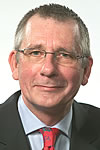European Parliament bureaucracy has plans for your future
European Parliament bureaucracy has plans for your future
The officials who are there to support the work of Members of the European Parliament have lost the plot. In a report totalling 280 pages, they put forward a series of proposals designed to increase their influence over various policy areas, including foreign affairs. To this end they argue that the European Parliament must be given more additional powers and in order to achieve this, the officials proceed for the sake of convenience on the assumption that there will be a federal Europe by around 2025. To cap it all, critical members of the public must be combatted with counter-information, using social media principally. The officials should have been spending their time more usefully. This report represents nothing more than an enclave of officials within the greater enclave of Brussels and has nothing to do with the reality of Europe.
 In the four years that I have been in the European Parliaments, I have had good experiences with officials from the EP secretariat. They do necessary work in following the countless legislative and other reports which are written in the European Parliament. At the same time it has struck me that there is in reality no-one but absolute Europhiles working here. They see ‘populists’ as their enemies and Eurocritical members of the public as people in need of education.
In the four years that I have been in the European Parliaments, I have had good experiences with officials from the EP secretariat. They do necessary work in following the countless legislative and other reports which are written in the European Parliament. At the same time it has struck me that there is in reality no-one but absolute Europhiles working here. They see ‘populists’ as their enemies and Eurocritical members of the public as people in need of education.
This also emerged from the report that the secretariat -as the collective of officials is generally known – presented in January. Of course it’s good that a secretariat of this kind should give an indication of how future developments could affect the number of officials which may be needed, what qualifications will be in demand and on logistics and infrastructure. Such a report must be realistic, however. It must be based on facts, and in this case these indicate that the vast majority of the European public don’t want a federal Europe. It’s extremely arrogant if, in the face of such opposition, you write a report which proceeds from the assumption that a federation will be a fact by 2025.
The officials conclude from this that the European union of 2025 will have its own ministers and that there will not only be a European foreign policy, but also a European coast-guard, a European army, a European police force and a European Office of Public Prosecutions. For this they will want to be well-prepared and for that reason the EP will undertake not only legislative but also executive tasks. There will be a parliamentary diplomatic corps, enabling the EP to impose European values on other countries. Throughout the world, representatives of the EP will be absorbed into the EU embassies, if a separate EP office hasn’t been opened. The Parliament’s information bureaux in the member states must be reformed to become true representatives which keep an eye on the national policies of the member states. The EP itself will monitor compliance with EU legislation by the member states and i9n so doing take over one of the Commission’s core tasks.
And so it goes, on and on. The officials clearly live in a dreamworld. The report isn’t only federalist, but neoliberal, arguing that the EP must become a watchdog to guard against the undermining of the World Trade Organisation’s principles: unlimited free trade is the message. As for development cooperation, the report states explicitly that this should not only be to aid poorer countries, but also to secure the strategic interests of the European Union.
- See also:
- Dennis de Jong
